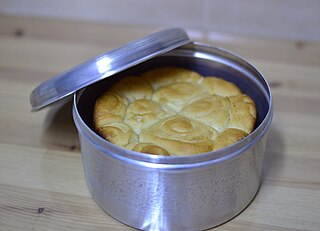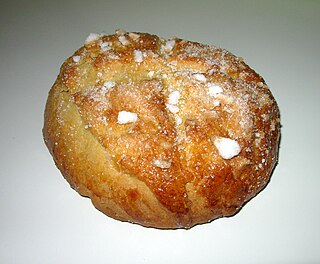 W
WShabbat or the Sabbath, also called Shabbos by Ashkenazim, is Judaism's day of rest on the seventh day of the week—i.e., Saturday. On this day, religious Jews remember the biblical stories describing the creation of the heaven and earth in six days and the redemption from slavery and The Exodus from Egypt, and look forward to a future Messianic Age. Since the Jewish religious calendar counts days from sunset to sunset, Shabbat begins in the evening of what on the civil calendar is Friday.
 W
WA challah cover is a special cloth used to cover the two braided loaves (challah) set out on the table at the beginning of a Shabbat or Yom Tov meal. While its appearance lends a decorative and ceremonial aspect to the set table, its presence serves both a halakhic and symbolic function.
 W
WA farbrengen is a Hasidic gathering. This term is only used by Chabad-Lubavitch Hasidim, as other Hasidim have a tish or a botteh. It may consist of explanations of general Torah subjects, with an emphasis on Hasidic philosophy, relating of Hasidic stories, and lively Hasidic melodies, with refreshments being served. It is regarded as a time of great holiness. Farbrengens are public events open to non-Hasidim as well.
 W
WHavdalah is a Jewish religious ceremony that marks the symbolic end of Shabbat and ushers in the new week. The ritual involves lighting a special havdalah candle with several wicks, blessing a cup of wine and smelling sweet spices. Shabbat ends on Saturday night after the appearance of three stars in the sky. Havdalah may be performed as late as sunset of the Tuesday following Shabbat.
 W
WThe Jubilee is the year at the end of seven cycles of shmita and, according to biblical regulations, had a special impact on the ownership and management of land in the Land of Israel. According to the Book of Leviticus, Hebrew slaves and prisoners would be freed, debts would be forgiven, and the mercies of Yahweh would be particularly manifest.
 W
WKubaneh Hebrew: כֻּבַּאנֶה is a traditional Yemenite Jewish bread that is popular in Israel. Kubaneh is traditionally baked overnight to be served for Shabbat morning accompanied by haminados, and resek agvaniyot.
 W
WKugel is a baked pudding or casserole, most commonly made from lokshen or Jewish egg noodles or potato. It is a traditional Ashkenazi Jewish dish, often served on Shabbat and Jewish holidays.
 W
WMouna, also known as Mona is an Algerian Jewish sweet bread of Sephardi origin, similar to challah, kubaneh or brioche, that is traditionally consumed for the Jewish holidays of Mimouna and Shabbat, which is commonly found today in France, and Israel, and has a sweet taste enriched with oil and eggs and often contains anise, sesame, orange, or other citrus.
 W
WNoodle kugel, pronounced [ˈkʊɡl̩]), also known as lokshen kugel or kigel, is an Ashkenazi Jewish casserole that is traditionally served as a side dish and popular variety of kugel made with lokshen noodles and either a variety of dairy or pareve ingredients, often served on Shabbat and Jewish holidays. Though sweet noodle kugels predominate, there is a wide range of noodle kugel varieties ranging from sweet, slightly sweet, to savory. They may be baked in a large casserole dish or in individual ramekins. Noodle kugels often contain raisins or other dried fruits, though some choose to omit these as a personal preference. They were traditionally either topped with a cinnamon streusel or more commonly not topped at all, however beginning in the 20th century noodle kugels began to be topped with a variety of toppings including crushed cornflakes, graham crackers, Frosted Flakes, pecan pralines, and other toppings.
 W
W"Remember the sabbath day, to keep it holy" is one of the Ten Commandments found in the Hebrew Bible.
 W
WSabbath desecration is the failure to observe the Biblical Sabbath and is usually considered a sin and a breach of a holy day in relation to either the Jewish Shabbat, the Sabbath in seventh-day churches, or to the Lord's Day (Sunday), which is recognized as the Christian Sabbath in first-day Sabbatarian denominations.
 W
WShabbat candles are candles lit on Friday evening before sunset to usher in the Jewish Sabbath. Lighting Shabbat candles is a rabbinically mandated law. Candlelighting is traditionally done by the woman of the household, but in the absence of a woman, it is done by a man. After lighting the candles, the woman moves her hands over the candles and towards her ; she then covers her eyes and recites a blessing.
 W
WShabbat.com is an online social network service aimed at the Jewish community. Shabbat.com connects users with "Hosts" for Shabbat as well as serving as an online dating platform and social network. Currently the site claims 100,000 members.
 W
WA tische is a Shabbat or holidays gathering for Hasidic Jews around their Rabbi or "Rebbe". In Chabad, a tische is called hitveadut (התועדות). It may consist of speeches on Torah subjects, singing of melodies known as niggunim and zemirot ("hymns"), with refreshments being served. Hasidim see it as a moment of great holiness.
 W
W W
W